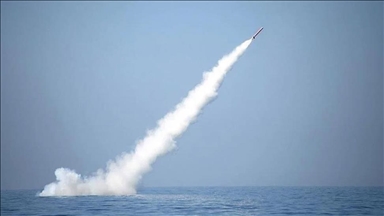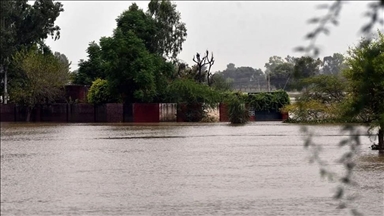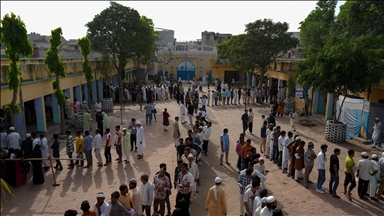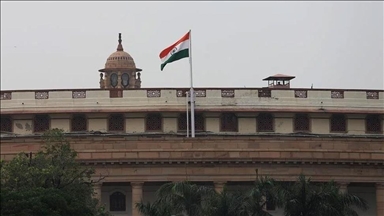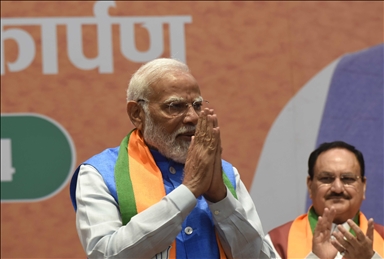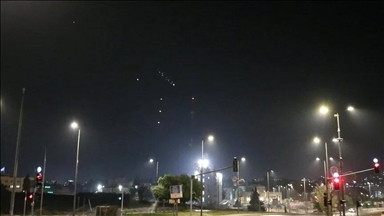US, Iran tensions may put India’s Chabahar dreams on hold
Ahead of Iran’s Soleimani killing, India had secured written assurance from US on exempting Chabahar port from sanctions
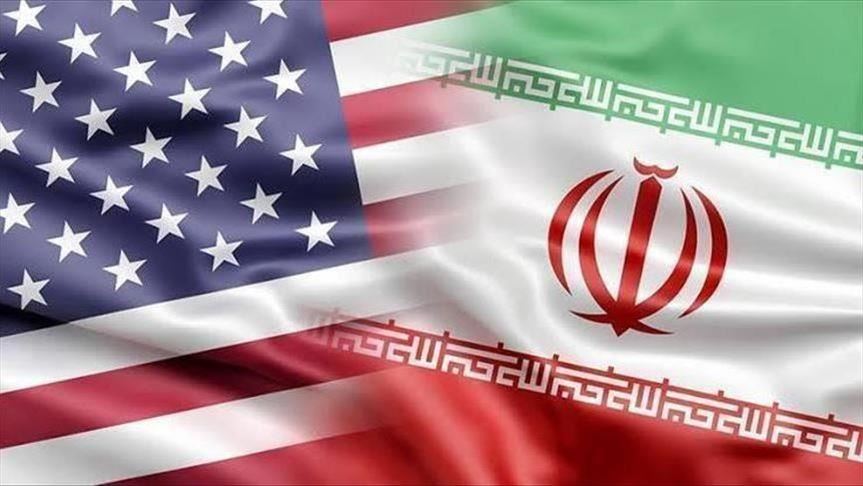
ANKARA
The killing of Iranian Gen. Qasem Soleimani has once again put a question mark on completion and operationalization of strategic Chabahar port, located in the Sistan-Baluchistan province on Iran’s southeastern coast.
Just a fortnight ago, India had achieved a breakthrough by securing a written assurance from the U.S. to exempt this Iranian port from sanctions. India is developing this port to secure connectivity to Afghanistan and Central Asia, bypassing Pakistan.
On Jan. 3, Soleimani, head of the Islamic Revolutionary Guard Corps’ (IRGC) Quds Force, was killed in a drone strike when he was leaving Baghdad International Airport. The U.S. claimed responsibility, with the Pentagon asserting that the strike “was aimed at deterring future Iranian attack plans”.
India is now hosting Iranian Foreign Minister Javad Zarif next week to explore options to safeguard Chabahar port as well as its energy and financial interests amid the escalating tensions.
At the second two-plus-two dialogue between India and the U.S. on Dec. 18-19 in Washington, the U.S. Secretary of State Mike Pompeo and Defense Secretary Mark Esper had handed over a written assurance to their Indian counterparts to keep the Iranian port out of the sanction list.
Though the U.S. had announced a waiver to the port in November 2018, global banks were reluctant to fund the purchase of equipment in absence of any written document. India needed to purchase equipment worth $85 million to build facilities at the port.
“We have to procure equipment for running the port, but because of the U.S. sanctions, we were not able to procure,” an Indian government official told Anadolu Agency.
The official, who is involved in the development of the project, said that India had placed orders almost two years ago. But for want of finances from the banks, the government is not able to open a letter of credit. The U.S. had announced exemption of this port from the sanction list but was not giving any written assurance.
“The payments are in dollars. We need some banks which deal in dollars or euros, so we have to hit the international banking system, and there, if the word Iran comes, no bank is prepared to stick its neck out. When we tell them, the U.S. has granted the exemption, they ask for a written document,” he stated.
Afghan traders also got affected
The absence of any written order was also hitting Afghan investors, who were trading through Chabahar Port.
Sakhi Ahmad Paiman, deputy head of the Chamber of Industry and Mines in Afghanistan, recently told Kabul-based news channel Tolo News that many businessmen were awaiting payment for a talc shipment -- comprised of 50 containers -- which was exported to India eight months ago. He said Afghan investors have not sent any shipment to Chabahar since then.
“At least 1,000 metric tons of talc was exported through Chabahar Port to India but the exporters have not been able to receive their money over the past eight months,” he said.
Following the killing of Soleimani, India now fears that the latest tensions between Iran and the U.S. will further scare both global and Indian companies, who had just begun scrambling to execute projects after the American assurance.
Observers say that the companies associated with the port project have already begun assessing the possible adverse impact on their investments and any possible economic punitive steps that the U.S. may take in the coming days on foreign companies investing in Iran, reported an Indian English language daily The Asian Age.
The U.S. action has sent India in a tight spot now as it was rebuilding its relations with Iran, intending to accelerate the Chabahar port project to continue its strategic foothold in Afghanistan.
Soon after concluding the two-plus-two strategic dialogue in Washington, India’s External Affairs Minister Subrahmanyam Jaishankar visited Tehran on Dec. 22. After informing Zarif that India has got written documents from the U.S. exempting the Shahid Beheshti Port at Chabahar from sanctions, the two sides “recognized that the port has the potential to act as a gateway between the Indian subcontinent, Iran, Afghanistan, Central Asia, and Europe”.
Both nations had also “welcomed the utilization of the port for exports from Afghanistan and discussed ways to promote it”.
“We are exploring how we can use this connectivity to expand our trade links with Central Asia. This was an important part of the External Affairs Minister’s meeting [with his Iranian counterpart],” said Raveesh Kumar, spokesman for the Indian Ministry of External Affairs.
Both countries reviewed the “entire gamut” of bilateral cooperation and agreed on accelerating our Chabahar project, Jaishankar also tweeted after the meeting.
India’s attempts to balance between Iran, US
In a statement issued last Friday, India described Soleimani as a senior Iranian leader but did not condemn his killing or the U.S. actions.
“We have noted that a senior Iranian leader has been killed by the U.S. The increase in tension has alarmed the world. Peace, stability, and security in this region is of utmost importance to India. The situation mustn't escalate further. India has consistently advocated restraint and continues to do so,” said the measured statement.
India and Iran had signed a deal in May 2016, to equip and operate the container and multi-purpose terminals at Shahid Beheshti -- Chabahar Port Phase-I -- by investing $85.21 million. It was decided that both countries will share revenues.
India’s energy security is also directly linked to the Gulf. While it has cut down the import of Iranian crude to a large extent over the past few years, Chabahar port remains a cornerstone of India’s connectivity aspirations to play an active role in Afghanistan and the Central Asia.
Admitting that India has been put in a very difficult position, a former Foreign Secretary Kanwal Sibal said the U.S.’s killing of Soleimani was bound to invoke retaliation.
“This will provoke retaliation and ultimately end up destabilizing the region and jeopardizing our wide-ranging interests there,” he said.
Anadolu Agency website contains only a portion of the news stories offered to subscribers in the AA News Broadcasting System (HAS), and in summarized form. Please contact us for subscription options.


